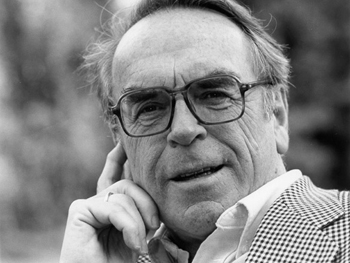|
|
|
 |
 |
 |

|
 |
Interview with a theologian
Posted on 02 March 2012, 6:19
It’s not every day you get to meet a 24 carat theologian, but next week I’m doing just that. I’m off to Tübingen in Germany to interview Jürgen Moltmann, who’s up there with Bonhoeffer, Barth, Bultmann and the other pin-ups of 20th century theology. The interview is for Third Way magazine, but some of the interview will be published on Ship of Fools and here.
Moltmann is probably most famous for his books Theology of Hope and The Crucified God, published in 1964 and 1972. But the things which have caught my eye so far in preparing for the interview are his experiences during and after the Second World War, where he fought as a soldier in the German army.
In his autobiography, A Broad Place, which I’m currently devouring, he says that he had no Christian faith then, but after he was captured by allied troops and held in a POW camp in Scotland, he started to read the Bible soon after he and his fellow POWs learned the terrible truth of what had been happening in Belsen, Buchenwald and the other concentration camps. ‘For me,’ he says, ‘every patriotic feeling for Germany – “holy Fatherland” – collapsed and died.’
In the early 60s, he travelled to Poland for the first time. He writes…
|
 |
 |
 |
 |
 |
| |
The most deeply emotional experience was to walk through the Maidaneck concentration and death camp, near Lublin. The plank beds in the barracks were the last resting places of starving and tormented men, women and children. Behind glass lay the little shoes of the murdered Jewish children, and hair that had been cut off from the gassed women. We saw the pits in which more than 10,000 people had been shot on a single day.
At the time I wanted to sink into the ground for shame, and would have suffocated in the presence of the mass murder, if on one of the roads through the camp I had not suddenly had a vision. I looked into the world of the resurrection and saw all these dead men, women and children coming towards me. Since then I have known that God’s history with Auschwitz and Maidaneck has not been broken off, but that it goes further with the victims and with the perpetrators. Without hope for the ‘new earth in which righteousness dwells’ (2 Peter 3.13), this earth, which has suffered Treblinka and Maidaneck, would be unendurable.
|
|
 |
|
 |
|
The experience profoundly shaped Moltmann’s theology in the 60s and 70s, which on one level responds to the question, How can you speak about God after the Holocaust? Where was God in the midst of that unimaginable suffering? His striking vision of ‘looking into the world of the resurrection’ is a pointer towards his theology of hope, where the kingdom of God breaks into the present from the future.
I’m hugely looking forward to meeting and talking with Jürgen Moltmann. If any readers of this blog would like to suggest questions to ask him, please post them here.
|
|
|
 |
|
|
 |

|
Comments
As someone who has never regarded his country of birth as either a father- or a motherland, I’m quite curious to know how deep these metaphors go and whether they impinge on a (eg German or Russian) Christian’s sense of God as father or, er, mother.
Huw, Fri 2 Mar, 20:21

Add your comment
|
|
|
|
